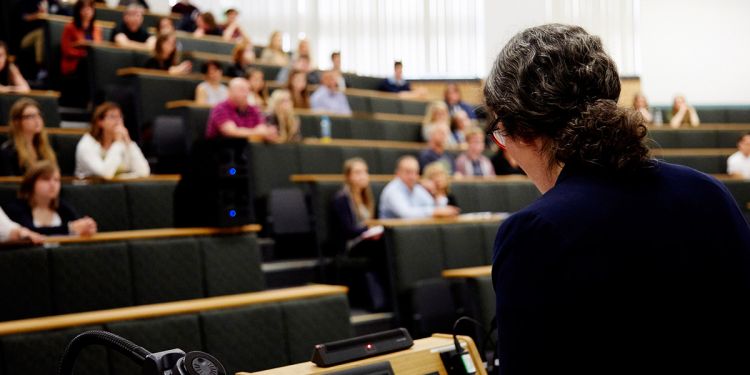Making arts and humanities disciplinary knowledge visible for our students

- Date: Wednesday 21 February 2024, 13:00 – 15:00
- Location: Online
- Cost: Free
Making arts and humanities disciplinary knowledge visible for our students
Engaging Curriculum Redefined through the Arts and Humanities: The Build Phase
A Focus on Disciplinary Learning and Assessment and Feedback
Series Lead: Dr Eva Sansavior, Academic Development Consultant (Curriculum Redefined) for the Faculty of Arts, Humanities and Cultures
Assessment and Feedback is a shared strategic priority within the Curriculum Redefined (CR) project and the Schools’ and Faculty of Arts, Humanities & Cultures’ National Student Survey (NSS) response plans. Extending programme development conversations from the Engaging Curriculum Redefined Through the Arts and Humanities Working Conversations series, the following three sessions will support colleagues in Faculty programme teams as they move into the ‘build phase’ of Curriculum Redefined.
- Session 1: Making arts and humanities disciplinary knowledge visible for our students
- Session 2: Implementing assessment and feedback for learning – reflecting on lessons learnt
- Session 3: Supporting students to develop assessment and feedback literacies
The sessions will offer a collegial space for reflecting on and sharing effective practice across the Faculty in student-centred assessment and feedback through the lens of disciplines in the arts and humanities. Taking a practical and reflective approach, the sessions will centre around the programme documents, curricula and student-facing resources shared by individual academics and programme teams. In this respect, the sessions aim to support programme teams to build on the aspirations expressed in the CR programme and module documentation and develop actionable concrete next steps. Sessions will be of particular interest to programme teams in the Faculty of Arts, Humanities and Cultures.
Session 1: Making arts and humanities disciplinary knowledge visible for our students
Wednesday 21 Feb, 1-3pm, online only.
Delivering transformative disciplinary teaching and learning experiences is a key aspiration of the Curriculum Redefined project. Across the range of disciplines which make up the arts and humanities, how is disciplinary knowledge defined and made visible to students as distinctive and valuable? And how is the redesign of learning outcomes and first-year curricula across the various programmes reshaping thinking and practice in these areas? Drawing together colleagues from practice-based and theoretical disciplines, this experiential session will combine insights from the educational research literature, colleagues’ practical experiences and discussion of examples of redeveloped discipline-specific curricula and student-facing teaching and learning resources.
Speakers include:
- Ben Bradley (School of Design)
- Dr Emily Bell (School of English)
- Dr Jo McGonigal and Dr Anna Douglas (School of Fine Art, History of Art & Cultural Studies)
- Dr Matthew Pritchard (School of Music)
Attendance is free, but to help us manage catering and hybrid facilities please complete the expression of interest form here: https://forms.office.com/e/EJmyMD5DBM

